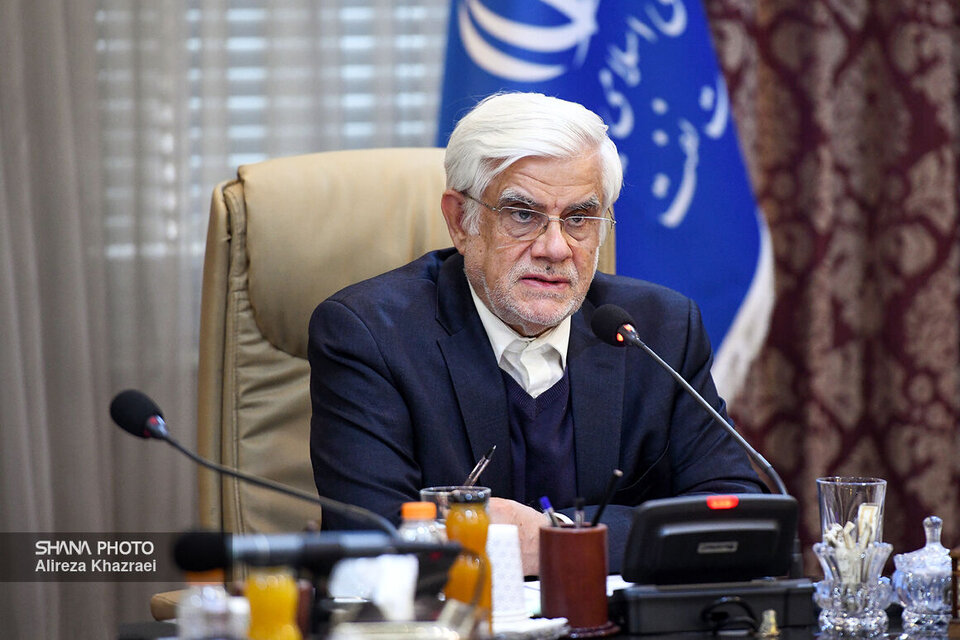Speaking at a meeting of the Oil Ministry’s deputies on Saturday, Aref expressed his gratitude to the ministry’s leadership and staff, emphasizing that the Oil Ministry is one of the most critical government bodies.
He noted that despite the typical difficulties faced in the early months of any new administration, the ministry has delivered exceptional results.
Aref stressed that the government views deputy ministers as having the same authority and responsibility as the minister, as they collectively form the ministry’s leadership.
Shared responsibility for shared challenges
The first vice president highlighted the Oil Ministry’s successes in increasing oil, gas, and petroleum product production, as well as delivering liquid fuel to power plants.
He acknowledged the challenges faced but praised the efforts that made these achievements possible.
Aref criticized past instances of fragmented decision-making and lack of coordination, which he said contributed to issues like energy imbalances.
He emphasized the need for a collaborative approach, where all ministries and agencies take shared responsibility for solving common problems.
The vice president noted that the Oil Ministry plays a significant role in addressing energy imbalances and that, thanks to the efforts of the minister and his team, these imbalances are being resolved.
Support for Energy Optimization Organization
Aref underscored the importance of energy optimization, pointing out that the Energy Optimization Organization, under the president’s authority, will centralize these efforts.
He called on all stakeholders to support the organization’s work, while cautioning that its establishment alone will not solve all existing problems.
The first vice president highlighted ongoing efforts to address energy imbalances, including a shift toward solar energy to alleviate the strain on the power sector, which has caused significant losses in recent years.
Long-term planning, development
Aref called for the development of a clear four-year plan with specific benchmarks, stressing the need to eliminate bureaucracy, particularly within the Oil Ministry.
He urged the ministry to accelerate its efforts to achieve the goals of the Seventh Development Plan, focusing on shared oil fields and pressure boosting projects.
He also emphasized the importance of capturing associated petroleum gas, citing environmental benefits and praising the detailed report presented during the meeting.
Leveraging skilled human resources
Aref highlighted the importance of attracting educated, experienced, and motivated professionals to the Oil Ministry.
He noted that many Iranians are deeply committed to their work and called for providing them with the necessary support and suggested collaborating with scientific associations to train high-quality personnel, even beyond the public sector’s needs.
Reviving prestige of Abadan Petroleum University
The first vice president recalled the prestigious reputation of Abadan Petroleum University in its early years, when top students from leading institutions like the University of Tehran, Sharif University, and Shiraz University chose to study there.
He called for efforts to restore the university’s standing, making it a magnet for academic elites who feel a sense of belonging and commitment to the oil industry.
Aref also noted that many Iranian experts and scientists who have emigrated still maintain strong ties to their homeland, often collaborating with knowledge-based and high-tech companies in Iran.
He emphasized the need to harness their expertise for the country’s benefit.


Your Comment